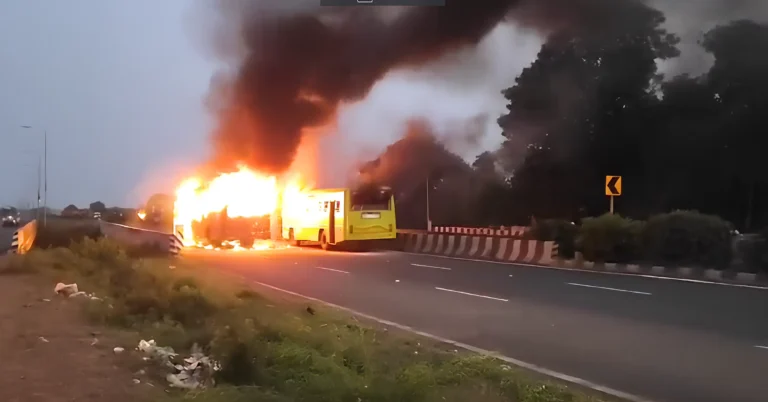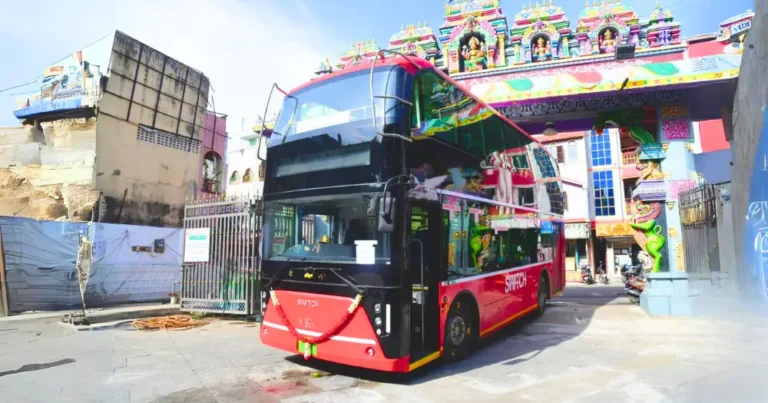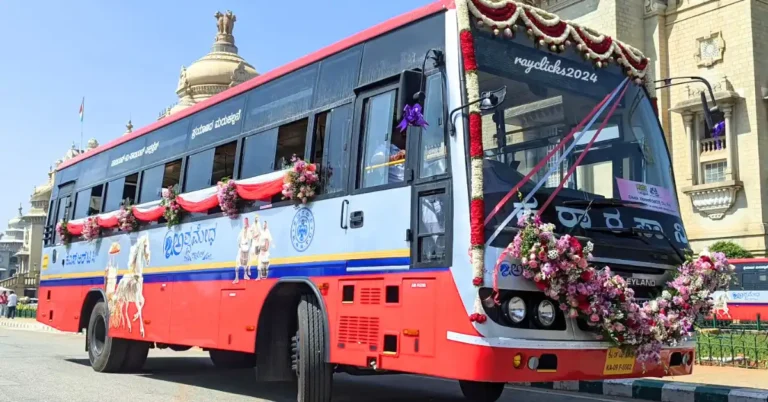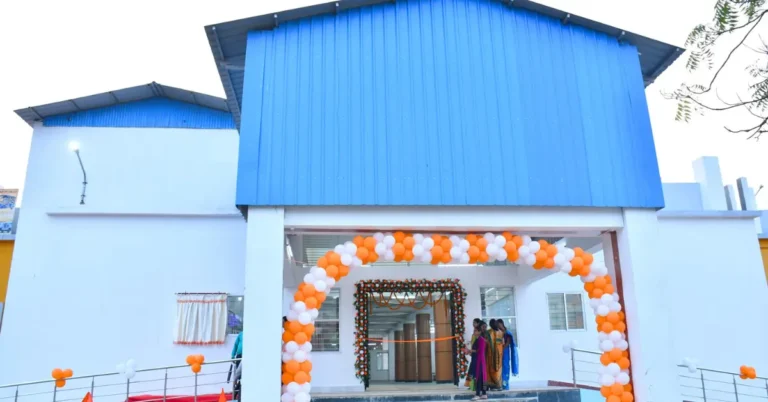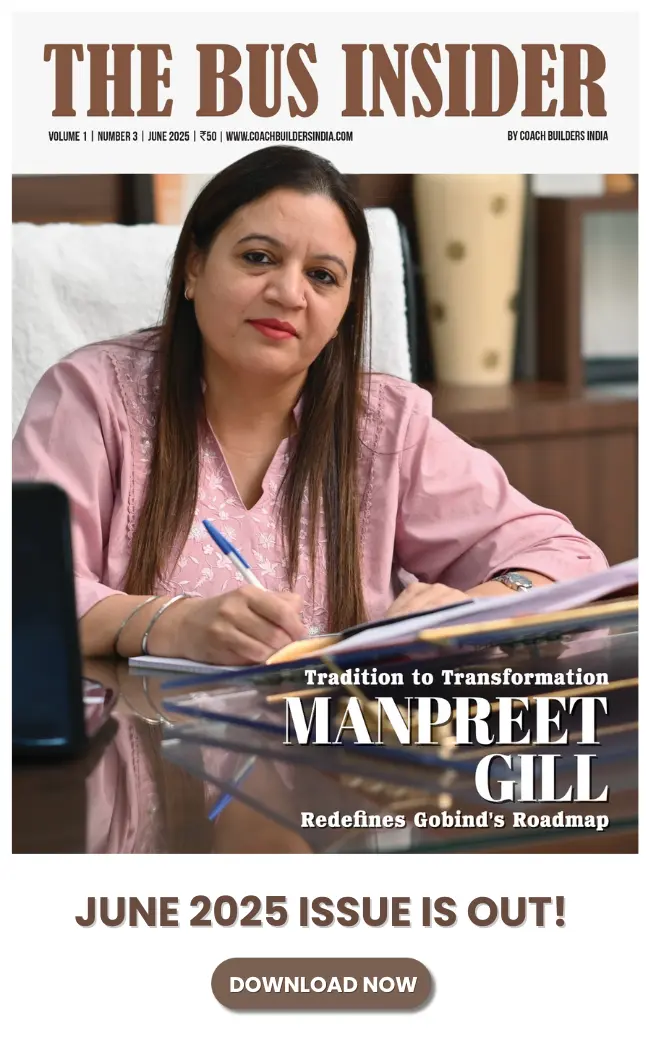Maharashtra Karnataka Bus Dispute Explained: How Passengers Are Paying for Territorial Tensions
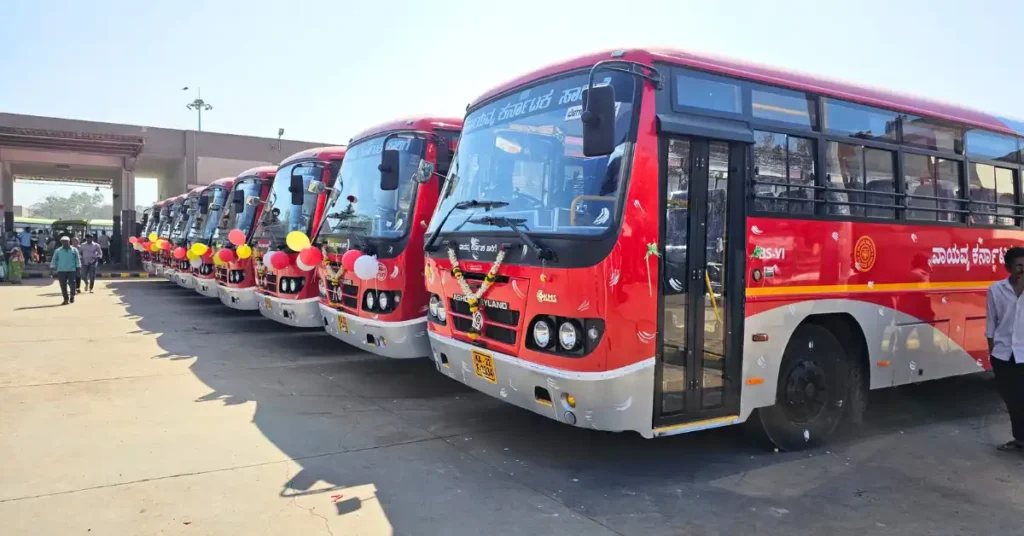
The Maharashtra Karnataka bus dispute has disrupted transportation between the two states, with the suspension of bus services affecting thousands of passengers.
What started as an altercation between a bus conductor and a passenger in Belagavi, Karnataka, quickly escalated into a broader issue due to deep-rooted territorial and linguistic disputes.
Let’s take a look at the incident, its historical context, and how passengers are caught in the middle of the ongoing tensions.
What Triggered the Maharashtra Karnataka Bus Dispute?
The recent flare-up began with an altercation on Friday in Belagavi, a border district of Karnataka.
According to reports, a conductor of a North West Karnataka Road Transport Corporation (NWKRTC) bus was assaulted by a group of individuals after he failed to respond in Marathi when a passenger requested a ticket in the language.
The situation quickly escalated when a larger group intercepted the bus, leading to a physical confrontation.
In retaliation, a driver of the Maharashtra State Road Transport Corporation (MSRTC) was attacked the following day in Chitradurga, a district in Karnataka.
The victim, Bhaskar Jadhav, had his bus blackened with paint. As the issue flared up, both Karnataka and Maharashtra transport corporations suspended services between the two states, citing safety concerns for staff and passengers.
RTO arrested in bribery case in Ernakulam for Demanding Money and Liquor from Bus Operator
Historical Context Behind the Issue
The root of the Maharashtra Karnataka bus dispute lies in the long-standing territorial and linguistic tensions between the two states.
Belagavi, once known as Belgaum, has been at the heart of a boundary dispute for decades.
- Post-Independence Boundaries: The issue began in 1956, during the reorganization of Indian states based on linguistic lines. Despite having a significant Marathi-speaking population, Belagavi was included in Karnataka after the state’s formation, which led to disputes.
- Maharashtra’s Claim: Maharashtra has argued that regions like Belagavi should have been part of Maharashtra due to the presence of Marathi speakers. The Maharashtra Ekikaran Samiti (MES), a political group, has long pushed for the merger of these areas with Maharashtra.
- Karnataka’s Stand: Karnataka, on the other hand, has staunchly defended its territorial rights, asserting that the regions in question were legally assigned to the state after independence. This territorial dispute continues to fuel tensions, particularly in areas like Belagavi and Karwar.
- Political Influence: The influence of local political groups such as Maharashtra Ekikaran Samiti (MES) in pushing for the inclusion of Marathi-speaking areas into Maharashtra adds fuel to the fire. Karnataka’s response has been to emphasize the unity of the state, leading to confrontations over language and culture.
Mo Bus Accidents: Is Odisha’s Commuter Lifeline Becoming a Killing Machine?
The Escalation: Attacks and Bus Service Suspensions
The physical assaults on both the bus conductor and bus driver led to immediate repercussions. In the aftermath, both the Maharashtra State Road Transport Corporation (MSRTC) and the Karnataka State Road Transport Corporation (KSRTC) halted their interstate bus services.
KSRTC and its subsidiaries operate approximately 120 buses daily from Belgavi to various destinations in Maharashtra, while MSRTC runs around 250 services to different parts of Karnataka.
In addition, private operators manage about 500 bus services each day between the two states. However, to avoid potential risks, many private operators chose to halt their services.
Key routes affected by the dispute include major connections between cities such as Mumbai, Bengaluru, Pune, Mysuru, Kolhapur, and Belagavi.
How the Maharashtra Karnataka Bus Dispute Affects Passengers
The ongoing Maharashtra Karnataka bus dispute has left passengers scrambling for alternative travel options. With services suspended or limited, those traveling between the two states are facing a significant burden.
- Hiked Ticket Prices: With fewer buses running, ticket prices for remaining services have skyrocketed. For example, private bus operators are charging between ₹1400 and ₹1800 for a single sleeper seat on routes that previously cost far less.
- Inconvenience and Uncertainty: Passengers traveling for work, education, and personal reasons are forced to endure uncertainty, with many struggling to secure seats on the limited services available. The disruption has created chaos, particularly for those who depend on buses for inter-state travel.
The Way Forward
The Maharashtra Karnataka bus dispute is a complex issue involving historical territorial claims, cultural identities, and political maneuvering.
While the incidents involving the bus conductor and driver were the immediate triggers, the larger context of territorial disputes between the two states has played a pivotal role in escalating tensions.
For now, passengers are left bearing the brunt of the dispute. The suspension of bus services, coupled with sky-high ticket prices, has made inter-state travel between Maharashtra and Karnataka an arduous task.
As both states navigate the fallout from this conflict, it remains to be seen how long it will take for normal services to resume and whether the longstanding territorial and linguistic tensions will ever be resolved.
Catch the Latest Bus Industry Updates, Exclusive Interviews, Bus News, and International Bus News on Coach Builders India. Download the latest issue of the The Bus Insider magazine for industry insights.

